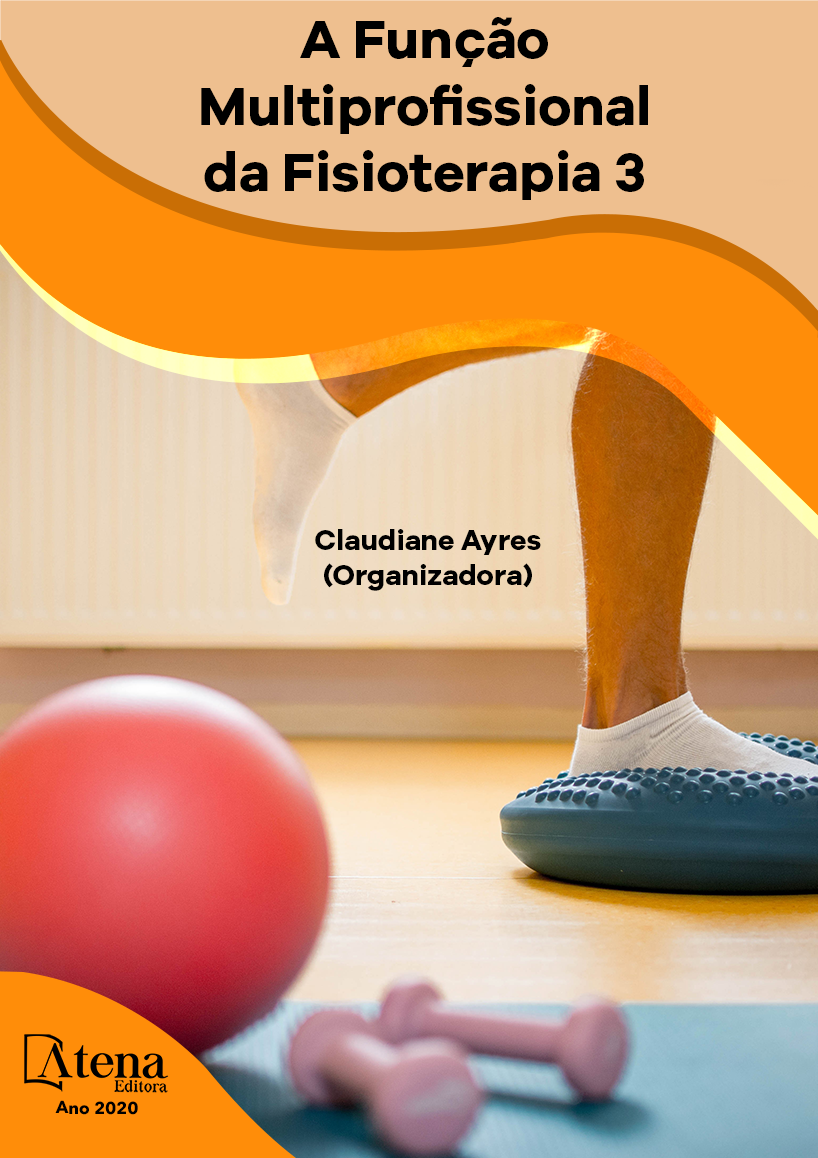
ESTUDO DE QUATRO PACIENTES PÓS AVC DE UM PROGRAMA DE FISIOTERAPIA EM GRUPO NO HOSPITAL UNIVERSITÁRIO DE SANTA MARIA
O Acidente Vascular Cerebral (AVC)
é uma alteração cerebral que acontece de
forma aguda. Podem ocorrer diversos agravos
à saúde, como dano nas funções de linguagem,
mentais, sensitivas, motoras e perceptivas.
Apresentamos o estudo de caso de quatro
pacientes do Programa Interdisciplinar de
Atenção a Hemiplégicos: Uma Abordagem de
Terapia em Grupo (PROHEMI) no Hospital
Universitário de Santa Maria (HUSM), destinado
ao atendimento fisioterapêutico a indivíduos
que tiveram AVC, realizado em março de 2017.
Estudo de caráter descritivo, exploratório,
realizado pela aplicação do Mini Exame do
Estado Mental (MEEM), e a Anamnese com
dados de identificação, estado de saúde,
dados referentes ao AVC e hábitos de vida. Os
participantes foram metade homens e metade
mulheres. Os resultados do MEEM foram de
23 até 29, com média de 25,5. A idade variou
de 53 anos até 66, com média de 59 anos, o
tipo de AVC para todos foi isquêmico, o caso de
AVC mais recente foi de 10 meses até o mais
antigo de 15 anos (média 7,6 anos). O tempo
de internação em regime hospitalar foi de 5 dias
até o maior tempo que foi de 65 dias (média 26
dias) e quanto ao tempo que fazem parte do
PROHEMI foi 2 meses a 13 anos (média 6,2
meses). As mulheres tiveram menor tempo de
internação (TI), são mais jovens e tiveram o AVC
há menos tempo que os homens, a paciente
com menor escore no MEEM é a que tem menos
tempo de PROHEMI. Dados que mostram que
os pacientes com menor TI e o paciente que teve
o AVC há mais tempo obtiveram o maior escore
do MEEM. Observamos que a realização de
atividade física em programa de reabilitação em
grupo, proporciona interação social, melhora no
nível cognitivo e mantêm os indivíduos ativos.
ESTUDO DE QUATRO PACIENTES PÓS AVC DE UM PROGRAMA DE FISIOTERAPIA EM GRUPO NO HOSPITAL UNIVERSITÁRIO DE SANTA MARIA
-
Palavras-chave: Fisioterapia. Acidente Vascular Cerebral. Mini Exame do Estado Mental.
-
Keywords: Physiotherapy. Stroke. Mini Mental State Exam
-
Abstract:
Stroke is a brain change that occurs acutely. Several health problems can
occur, such as impaired language, mental, sensory, motor and perceptual functions.
We present the case study of four patients of the Interdisciplinary Hemiplegic Care
Program: A Group Therapy Approach (PROHEMI) at the Santa Maria University
Hospital (HUSM), aimed at physiotherapeutic care for stroke patients, conducted in
March 2017. of descriptive, exploratory character, performed by the application of the
Mini Mental State Examination (MMSE), and Anamnesis with identification data, health
status, stroke-related data and lifestyle habits. Participants were half men and half
women. MMSE results ranged from 23 to 29, with an average of 25.5. Ages range from
53 years to 66, with an average of 59 years, the type of stroke for all was ischemic, or the
most recent stroke was 10 months to the oldest of 15 years (average 7.6 years). . The
length of hospital stay was from 5 days to the longest, which was 65 days (average 26
days) and the time that was part of PROHEMI was from 2 months to 13 years (average
6.2 months). Because women had shorter hospital stays (TI), younger patients, and
had a shorter stroke than men, a patient with a lower MMSE score has less time than
PROHEMI. Data showing patients with lower IT and stroke patients have longer time
or higher MMSE score. We observed that performing physical activity in the group
rehabilitation program provides social interaction, improves cognitive level and keeps
active assets.
-
Número de páginas: 15
- Gabriela Marques Dias
- Ana Lucia Cervi Prado
- Gabriele Ruiz Keller


